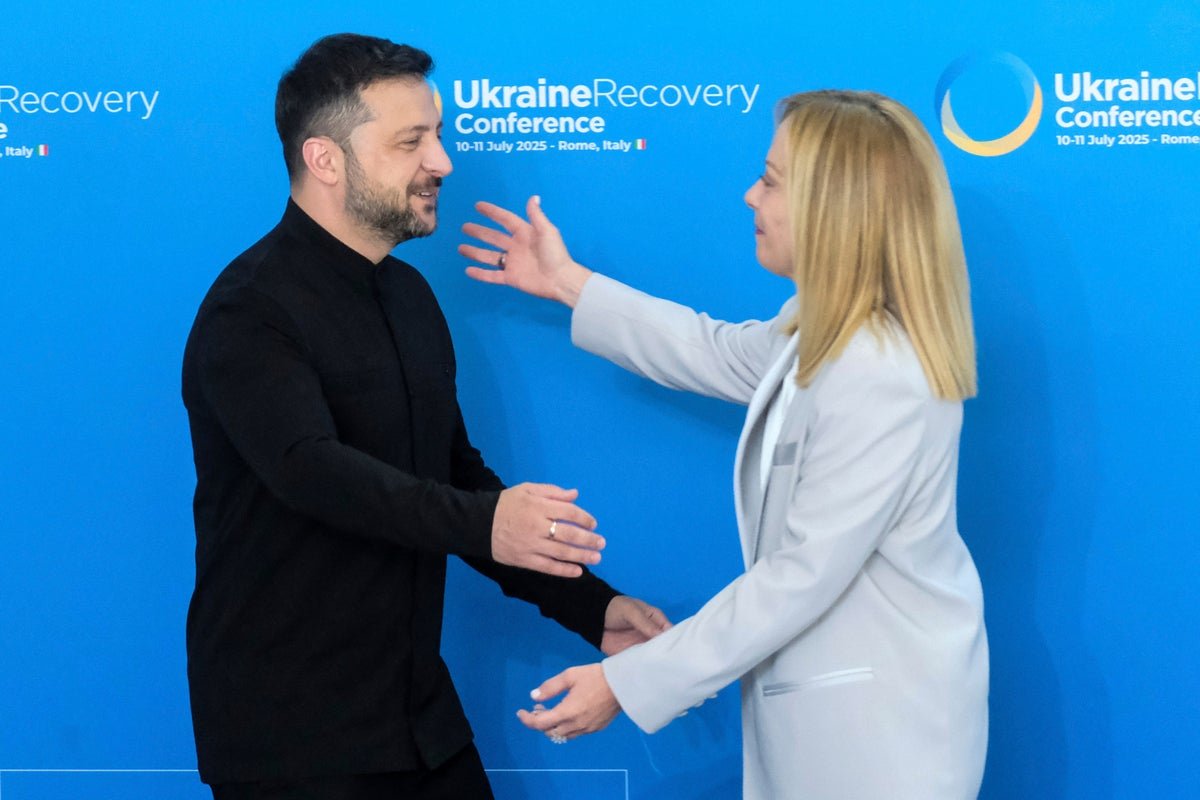US Politics
European allies step up plans for future Ukraine stabilization force, with US attending meeting

Your support helps us to tell the story
From reproductive rights to climate change to Big Tech, The Independent is on the ground when the story is developing. Whether it’s investigating the financials of Elon Musk’s pro-Trump PAC or producing our latest documentary, ‘The A Word’, which shines a light on the American women fighting for reproductive rights, we know how important it is to parse out the facts from the messaging.
At such a critical moment in US history, we need reporters on the ground. Your donation allows us to keep sending journalists to speak to both sides of the story.
The Independent is trusted by Americans across the entire political spectrum. And unlike many other quality news outlets, we choose not to lock Americans out of our reporting and analysis with paywalls. We believe quality journalism should be available to everyone, paid for by those who can afford it.
Your support makes all the difference.
Read more
Countries prepared to provide troops for a post-cease-fire force in Ukraine agreed to set up a headquarters in Paris for a rapid deployment after hostilities end in Russia’s war on its neighbor. A U.S. delegation was present for the first time at a meeting of the group on Thursday.
Retired Lt. Gen. Keith Kellogg, U.S. President Donald Trump’s special envoy for Ukraine and Russia, was on hand for the meeting, which took place on the sidelines of the fourth annual conference on Ukraine’s recovery held in Rome.
Also present were Republican Sen. Lindsey Graham and Democratic Sen. Richard Blumenthal, who have co-sponsored a new sanctions bill against Russia, calling in part for a 500% tariff on goods imported from countries that continue to buy Russian oil.
French President Emmanuel Macron and U.K. Prime Minister Keir Starmer joined the meeting via videoconference from Britain, where Macron is on a state visit.
In a statement, coalition members said they had agreed on a Paris headquarters for the first year of the force, which is to be known as the Multinational Force Ukraine, and then rotating it to London, with plans for a coordination cell in Kyiv, Ukraine’s capital.
The force, whose members were not identified, is expected to provide logistical and training experts to help reconstitute Ukraine’s armed forces, secure Ukraine’s skies and the Black Sea. No specific commitments were announced and it wasn’t clear in what capacity the U.S. delegation attended.
Starmer said the “reassurance force” is essential for delivering security to Europe.
“That is why the coalition of the willing is ensuring we have a future force that can deploy following a ceasefire to deter Russian aggression for years to come,” he said in a statement.
Italian Premier Giorgia Meloni said she was proud that Washington’s participation in the coalition meeting, the sixth since the war began, happened in Rome and said it was a “fundamental” sign of Western unity in backing Kyiv.
“I do agree on the fact that we must also increase pressure on Moscow to achieve as soon as possible a ceasefire that will finally make way for diplomacy,” she said. “But as always we have to remind that it only can happen thanks to deterrence, it only can happen thanks to deterrence, as anyone who is not naive perfectly understands.”
Ukrainian President Volodymyr Zelenskyy, for his part, also thanked Kellogg, Graham and Blumenthal for their attendance, as well as recent signs from Trump of support for Ukraine.
“His signals are very, very important, and we count on it,” Zelenskyy said. “And I’m sure that in the future, we will develop the coalition of the willing together.”
